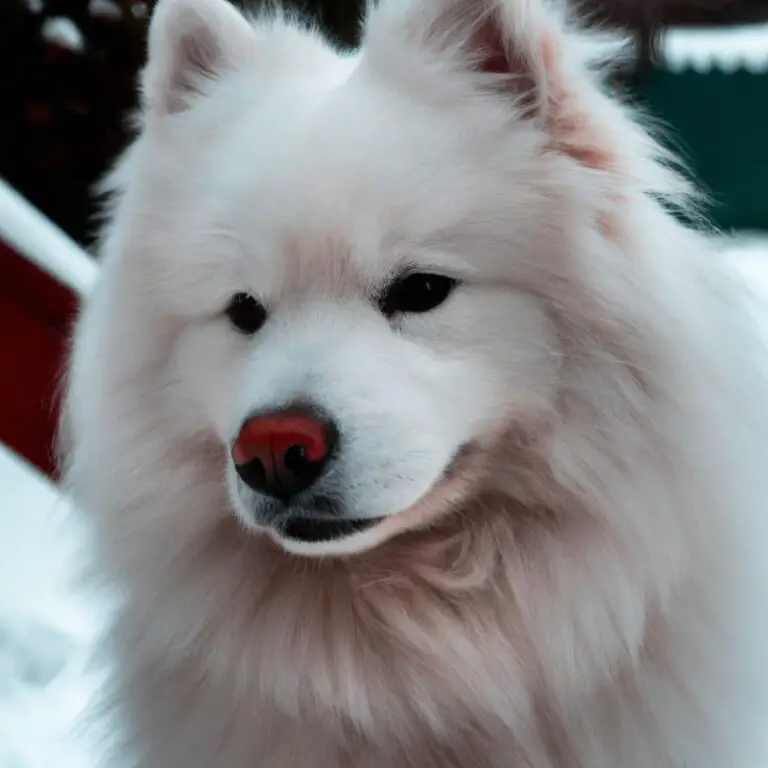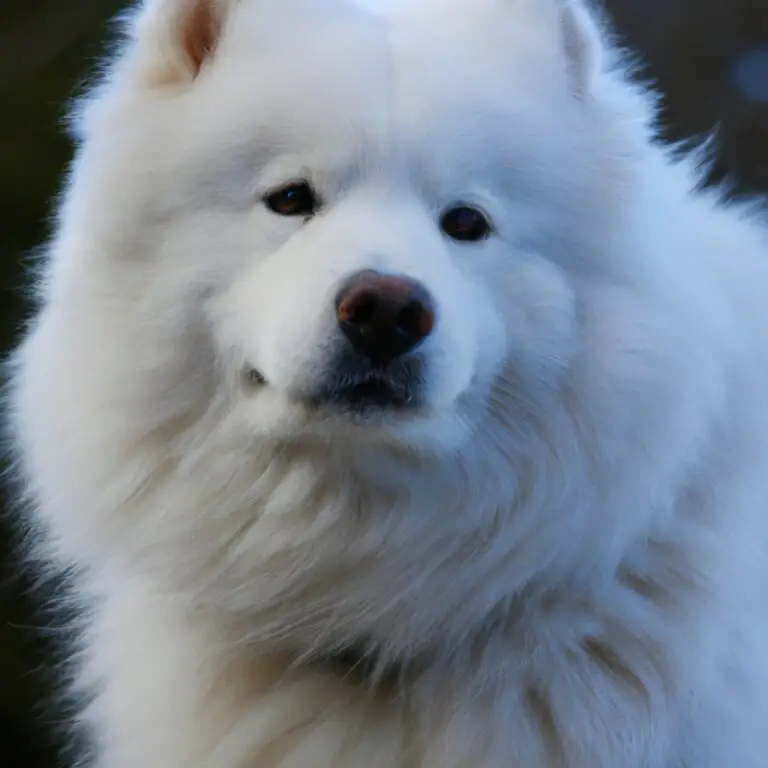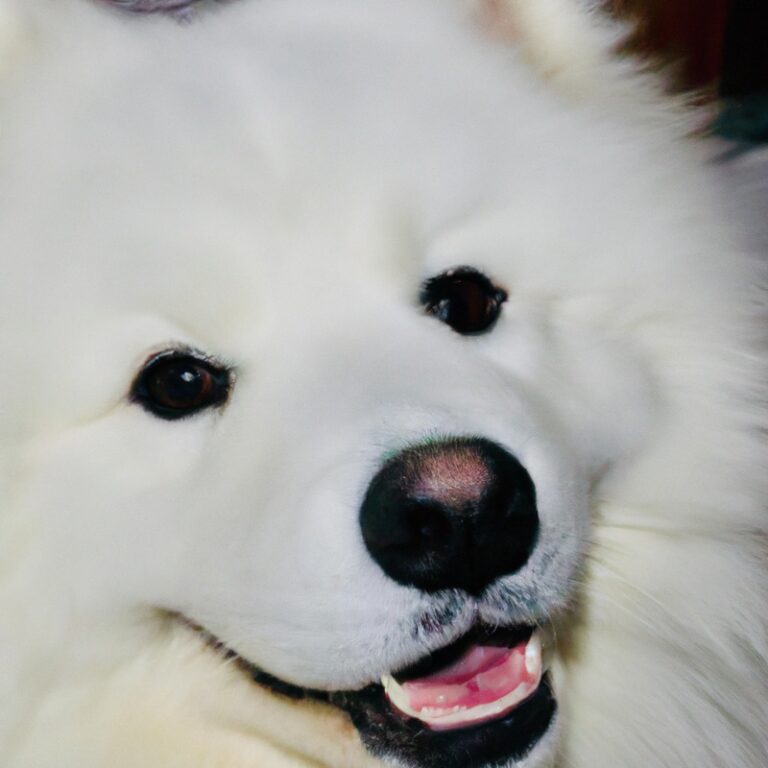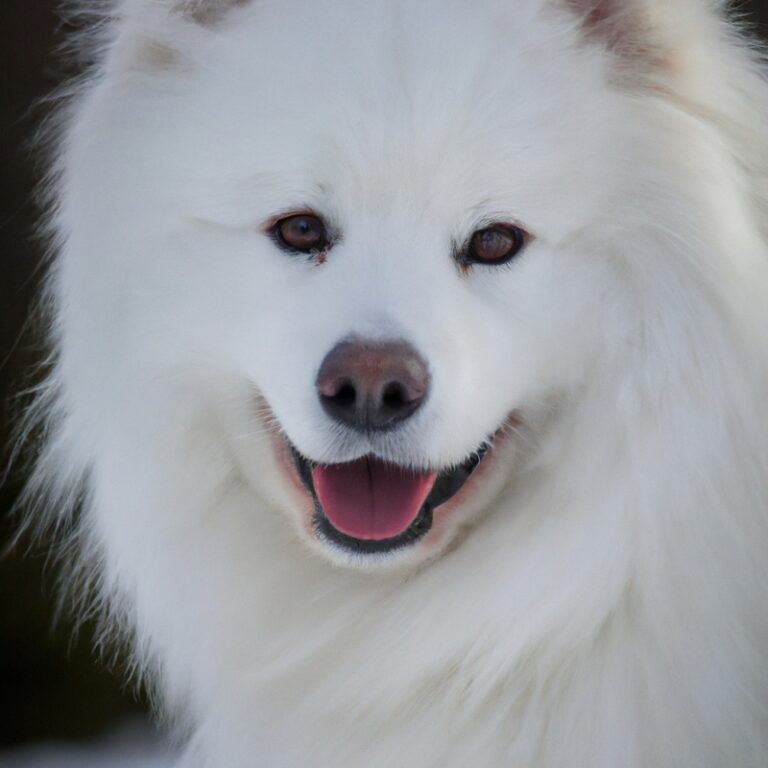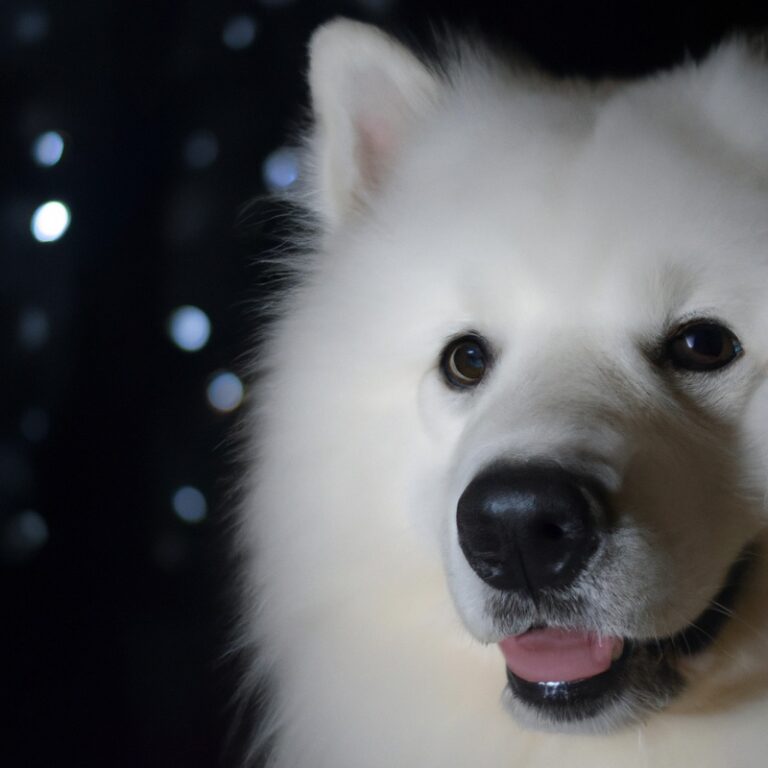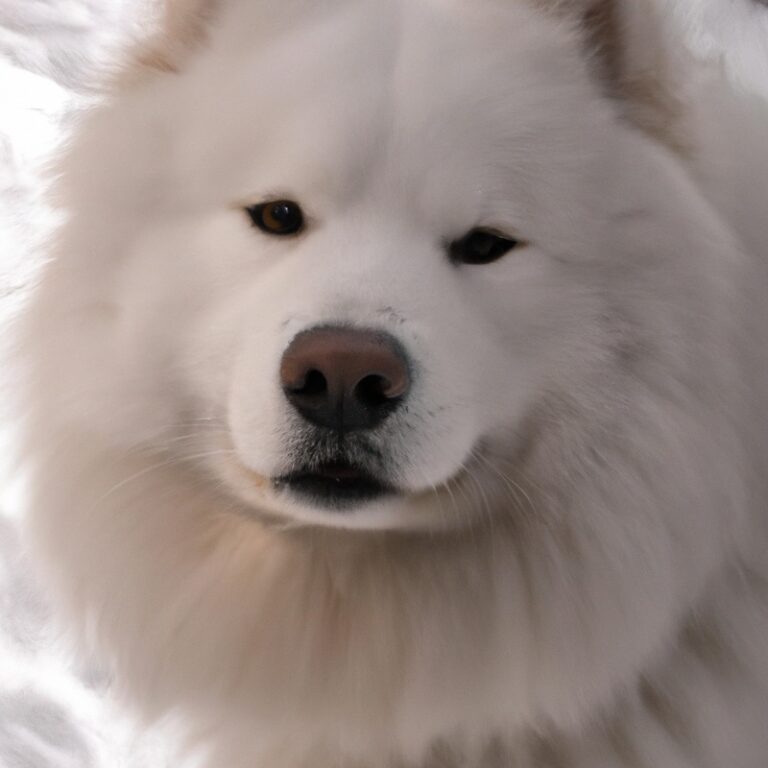Are Samoyeds Good Guard Dogs?
Key Takeaways:
- Samoyeds are not known for their guarding instincts and are generally not considered good guard dogs.
- While Samoyeds are friendly and gentle, they tend to be more social and welcoming to strangers, making them less suitable for guarding purposes.
- Samoyeds’ friendly nature and lack of aggression make them better suited as family pets or therapy dogs rather than guard dogs.
- If you are looking for a dog breed specifically for guarding, other breeds would likely be a better choice than Samoyeds.
Are you looking for a four-legged guardian to keep your home safe and secure?
Well, look no further than the majestic and lovable Samoyed! With their striking appearance and friendly demeanor, these fluffy white pups might not be the first breed that comes to mind when thinking of guard dogs.
But don’t let their cheerful nature fool you – Samoyeds have a natural instinct to protect their loved ones and are fiercely loyal.
In this article, we’ll delve into the characteristics that make Samoyeds potentially good guard dogs, as well as their limitations and other factors to consider.
So, let’s find out if these beautiful creatures are up to the task of safeguarding your home!
| Pros | Cons |
|---|---|
| 1. Friendly and gentle nature | 1. Not aggressive |
| 2. Alert and watchful | 2. May not bark much |
| 3. Good with children | 3. Require regular grooming |
| 4. Adaptable to different environments | 4. May suffer from separation anxiety |
Characteristics of Samoyeds
Temperament of Samoyeds
Samoyeds have a friendly and gentle temperament that makes them great family pets.
They are known for being social, affectionate, and outgoing towards both humans and other animals.
These dogs are often described as “smiling” and are very people-oriented.
They thrive on attention and love to be included in family activities.
However, it’s important to note that Samoyeds can be independent thinkers and may require consistent training and socialization to prevent unwanted behaviors.
They are not typically aggressive, making them less suitable as guard dogs.
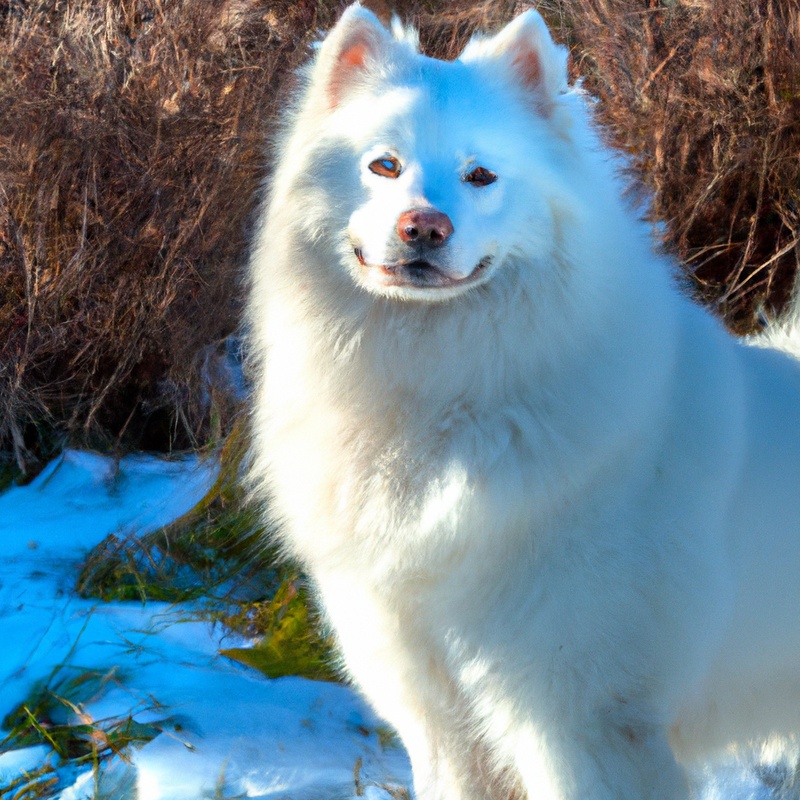
Appearance and size of Samoyeds
Samoyeds are known for their stunning appearance and medium to large size.
They have a thick double coat that comes in a variety of colors, including white, cream, and biscuit.
With their bushy tails curled over their backs, they have an elegant and regal look.
As for their size, Samoyeds are considered a medium to large breed.
Males typically stand around 21-23.5 inches at the shoulder, while females are slightly smaller, measuring 19-21 inches.
In terms of weight, adult Samoyeds usually range from 45-65 pounds.
Their size and fluffy appearance make Samoyeds look quite majestic, which is one of the reasons why people are drawn to them as pets.
But beyond their appearance, Samoyeds are also known for their friendly and gentle nature.

Communication and alertness
Communication is a key characteristic of Samoyeds.
They are highly alert and often vocal, using barks, howls, and various vocalizations to communicate with their owners.
They can sense danger and will alert you by barking persistently.
Samoyeds are also known for their expressive eyes, which they use to convey their emotions and intentions.
Their alertness makes them good at recognizing stranger danger and potential threats to their family, making them excellent watchdogs.
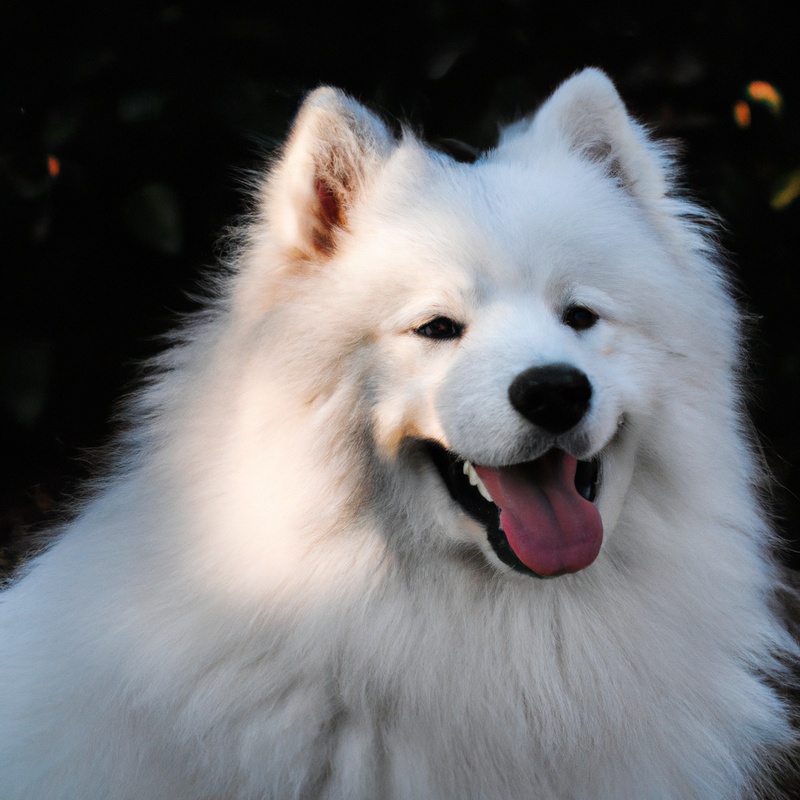
Samoyeds as guard dogs
Why people consider Samoyeds as guard dogs
People consider Samoyeds as guard dogs because of their protective instincts and alert nature.
Samoyeds are known to be highly observant, always keeping an eye out for any potential threats or strangers approaching.
Their size and appearance can also intimidate intruders.
Additionally, Samoyeds are loyal and devoted to their families, making them willing to defend their loved ones if necessary.
While they may not have the aggressive tendencies of traditional guard dog breeds, their watchful nature makes them a good deterrent for potential intruders.
Natural guarding instincts of Samoyeds
Samoyeds have natural guarding instincts which make them alert and protective companions. With their keen senses and strong instinct to protect their family, they are known to bark and raise an alarm when they sense something unusual or perceive a potential threat.
Their inherent protective nature, combined with their friendly and sociable temperament, makes them excellent watchdogs.
They may not be aggressive guard dogs but their instinctive alertness serves as an effective deterrent.
Loyalty and protective nature of Samoyeds
Samoyeds are known for their exceptional loyalty and protective nature.
They form strong bonds with their families and will go to great lengths to keep them safe.
Samoyeds are instinctively protective, and their watchful nature makes them good at alerting their owners to potential threats.
They are not aggressive dogs, but their size and bravery can act as a deterrent.
Samoyeds will always have your back and make you feel secure with their unwavering loyalty.
Limitations of Samoyeds as guard dogs
Lack of aggression
Samoyeds are not known for their aggression. They are generally friendly and gentle dogs, which can limit their effectiveness as guard dogs.
Samoyeds are more likely to greet strangers with enthusiasm rather than being protective.
While they may bark to alert their owners, they do not usually exhibit aggressive behavior towards strangers. However, their size and appearance alone might act as a deterrent to potential intruders.
Instead of aggression, Samoyeds excel in being loving and affectionate family pets.
Friendliness towards strangers
Samoyeds are known for their friendly nature, and this extends to strangers as well. They have a natural tendency to be sociable and approachable towards people they don’t know.
Their friendly demeanor makes it less likely for them to be aggressive or wary towards strangers.
However, it’s important to note that each dog’s personality may vary, and proper socialization and training are crucial in shaping their behavior towards strangers. Ultimately, a well-socialized and trained Samoyed can be friendly and welcoming to strangers.
Potential challenges in training Samoyeds for guard duties
Training Samoyeds for guard duties can pose certain challenges.
One challenge is their friendly and sociable nature.
Samoyeds are known for being people-oriented and may not naturally exhibit the protective instincts required of a guard dog.
Additionally, they have a tendency to become easily distracted, which can make it difficult to maintain their focus during training sessions.
Another challenge is their independent streak, which can make them less inclined to follow commands consistently.
Patience, consistency, and positive reinforcement techniques are key when training Samoyeds for guard duties.
Other factors to consider
Living conditions and exercise needs of Samoyeds
Samoyeds are active and energetic dogs that require a lot of exercise to stay happy and healthy. They thrive in homes with large yards where they have plenty of space to run and play.
These dogs love to be part of the family and prefer to be indoors when their humans are around.
However, they also enjoy spending time outside, especially in colder weather. Regular exercise, such as walks, runs, and play sessions, is essential to keep them physically and mentally stimulated.
If you’re considering getting a Samoyed, make sure you have the time and commitment to meet their exercise needs.
Socialization and training requirements
Socialization and training are important for Samoyeds to become well-rounded and obedient companions. Socialize your Samoyed from an early age to expose them to different people, animals, and environments.
This will help them develop good behavior and adaptability.
Training should focus on positive reinforcement techniques, as Samoyeds respond well to rewards and praise. Consistency and patience are key in training your Samoyed.
Providing them with proper mental and physical stimulation is also crucial for their well-being.
Health considerations for Samoyeds as guard dogs
When considering Samoyeds as guard dogs, it’s important to pay attention to their health. Regular exercise is crucial to keep them physically and mentally stimulated.
Proper nutrition is essential to maintain their overall well-being.
Regular check-ups with a veterinarian are necessary to ensure they are in good health. Additionally, regular grooming is necessary to maintain their coat’s health.
By taking these health considerations into account, you can help your Samoyed thrive as a guard dog.
Frequently Asked Questions (FAQs)
Can Samoyeds protect my home?
Samoyeds can act as good watch dogs due to their alert nature and protective instincts. While they may not be the best choice for a guard dog in terms of physical intimidation, their tendency to bark and alert their owners to potential threats can contribute to home security.
However, their friendly and social nature may limit their effectiveness as aggressive guard dogs.
It’s important to note that proper training and socialization are key factors in determining a Samoyed’s ability to protect a home.
Are Samoyeds good with children?
Samoyeds are known to be great with children.
They are friendly, gentle, and patient, making them ideal family dogs.
Samoyeds love to play and are very tolerant, which is perfect for kids.
They have a natural instinct to protect their loved ones, so they can also act as watchdogs for your children.
Just be sure to always supervise interactions between your Samoyed and your children to ensure everyone’s safety.
How can I train my Samoyed to be a good guard dog?
Training your Samoyed to be a good guard dog starts with early socialization.
Introduce them to new people, places, and experiences so they can develop confidence.
Teach them basic obedience commands like “sit” and “stay” to establish control.
Use positive reinforcement and reward-based training methods.
Focus on teaching them to bark on command and to differentiate between friendly visitors and potential threats.
Consistent training and patience will help them become a reliable and protective guard dog.
Final Verdict
While Samoyeds possess some traits that could make them suitable guard dogs, they may not be the best choice for this role. Their friendly and sociable nature, along with their tendency to lack aggression, can hinder their effectiveness as strict guard dogs.
However, they do have a strong protective instinct and can serve as a reliable deterrent with proper training and socialization.
Ultimately, it is crucial to consider their unique characteristics, limitations, and the specific needs of your home before determining if a Samoyed is the right fit for your guarding requirements.


